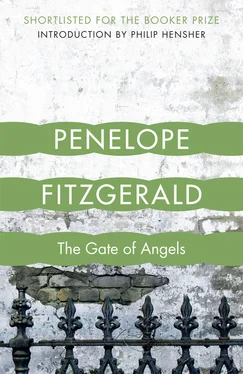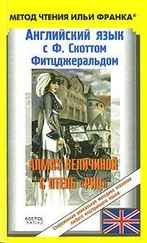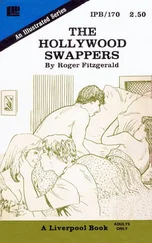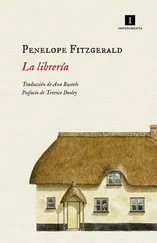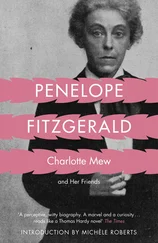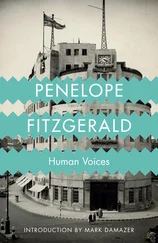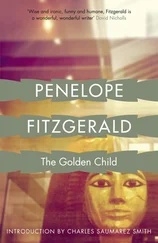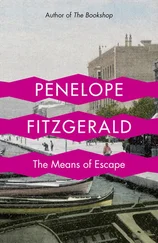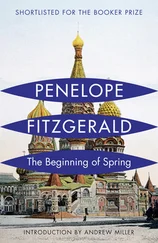The Gate of Angels
PENELOPE FITZGERALD

COVER
TITLE PAGE The Gate of Angels PENELOPE FITZGERALD
PREFACE BY HERMIONE LEE, ADVISORY EDITOR
INTRODUCTION
Part One
1 FRED’S THREE NOTES
2 A FEW WORDS ABOUT ST ANGELICUS
3 HOW FRED GOT THIS JOB IN THE FIRST PLACE
4 DINNER AT ST ANGELICUS
5 AT THE RECTORY
6 THE DISOBLIGERS’ SOCIETY
7 WHO IS DAISY?
Part Two
8 DAISY
9 THE BLACKFRIARS HOSPITAL
10 THE MEN’S WARD
11 THE CASE OF JAMES ELDER
12 KELLY
13 DAISY LEAVES LONDON
Part Three
14 NO MYSTERY ABOUT DAISY’S MOVEMENTS
15 A WALK IN THE COUNTRY
16 A VISIT FROM THE FAIRLYS
Part Four
17 DR MATTHEWS’ GHOST STORY
18 AN UNUSUAL COURT CASE
19 KELLY LAID TO REST
20 FRED’S ADVICE TO HIS STUDENTS
21 AT DR SAGE’S HOSPITAL
22 THE GATE OF ANGELS
OTHER WORKS
COPYRIGHT
ABOUT THE PUBLISHER
Preface by Hermione Lee, Advisory Editor
When Penelope Fitzgerald unexpectedly won the Booker Prize with Offshore , in 1979, at the age of sixty-three, she said to her friends: ‘I knew I was an outsider.’ The people she wrote about in her novels and biographies were outsiders, too: misfits, romantic artists, hopeful failures, misunderstood lovers, orphans and oddities. She was drawn to unsettled characters who lived on the edges. She wrote about the vulnerable and the unprivileged, children, women trying to cope on their own, gentle, muddled, unsuccessful men. Her view of the world was that it divided into ‘exterminators’ and ‘exterminatees’. She would say: ‘I am drawn to people who seem to have been born defeated or even profoundly lost.’ She was a humorous writer with a tragic sense of life.
Outsiders in literature were close to her heart, too. She was fond of underrated, idiosyncratic writers with distinctive voices, like the novelist J. L. Carr, or Harold Monro of the Poetry Bookshop, or the remarkable and tragic poet Charlotte Mew. The publisher Virago’s enterprise of bringing neglected women writers back to life appealed to her, and under their imprint she championed the nineteenth-century novelist Margaret Oliphant. She enjoyed eccentrics like Stevie Smith. She liked writers, and people, who stood at an odd angle to the world. The child of an unusual, literary, middle-class English family, she inherited the Evangelical principles of her bishop grandfathers and the qualities of her Knox father and uncles: integrity, austerity, understatement, brilliance and a laconic, wry sense of humour.
She did not expect success, though she knew her own worth. Her writing career was not a usual one. She began publishing late in her life, around sixty, and in twenty years she published nine novels, three biographies and many essays and reviews. She changed publisher four times when she started publishing, before settling with Collins, and she never had an agent to look after her interests, though her publishers mostly became her friends and advocates. She was a dark horse, whose Booker Prize, with her third novel, was a surprise to everyone. But, by the end of her life, she had been short-listed for it several times, had won a number of other British prizes, was a well-known figure on the literary scene, and became famous, at eighty, with the publication of The Blue Flower and its winning, in the United States, the National Book Critics Circle Award.
Yet she always had a quiet reputation. She was a novelist with a passionate following of careful readers, not a big name. She wrote compact, subtle novels. They are funny, but they are also dark. They are eloquent and clear, but also elusive and indirect. They leave a great deal unsaid. Whether she was drawing on the experiences of her own life – working for the BBC in the Blitz, helping to make a go of a small-town Suffolk bookshop, living on a leaky barge on the Thames in the 1960s, teaching children at a stage-school – or, in her last four great novels, going back in time and sometimes out of England to historical periods which she evoked with astonishing authenticity – she created whole worlds with striking economy. Her books inhabit a small space, but seem, magically, to reach out beyond it.
After her death at eighty-three, in 2000, there might have been a danger of this extraordinary voice fading away into silence and neglect. But she has been kept from oblivion by her executors and her admirers. The posthumous publication of her stories, essays and letters is now being followed by a biography ( Penelope Fitzgerald: A Life , by Hermione Lee, Chatto & Windus, 2013), and by these very welcome reissues of her work. The fine writers who have done introductions to these new editions show what a distinguished following she has. I hope that many new readers will now discover, and fall in love with, the work of one of the most spellbinding English novelists of the twentieth century.
‘Those who have only known Christminster as undergraduates often think the lives of its residents are very uneventful,’ the novelist Robert Liddell wrote in his The Last Enchantments , set in an ancient university town. Penelope Fitzgerald’s The Gate of Angels is a scrupulous reconstruction of the life of another ancient university town, Cambridge, at a particular moment, that omits the principal purpose of the university in search of the eventful. The education of the young hardly impinges on the action; the life of the mind hardly seems to encompass the life of the undergraduate on which almost all other university novels depend – Fraill and Cork are the lightest bit-parts, as their names suggest. Fitzgerald’s focus is on the unseen and the overlooked, and events which can transform lives take place among the effectively invisible population – visiting day-trippers, local bourgeoisie, a junior don.
Fitzgerald’s novels are all very interested in the unnarrated event that the reader will know all about, but which the characters can’t envisage. A terrible accident may happen at the end of both Human Voices and At Freddie’s , but we can’t know for certain. We have to construct that unnarrated event, like the deaths of characters in The Blue Flower , consigned to a summary epilogue. The mind wonders, and constructs the agonising particulars on a scale that only requires, it appears, an economic allusion on the part of the novel itself.
The technique is most powerfully present in two of the last novels with historical themes. The Gate of Angels and The Beginning of Spring take place at the same time, 1912 and 1913. Both appear to know nothing about the historical catastrophes fast approaching. When Fred says that ‘these are wonderful years in Cambridge’ and looks with cross-national admiration at the retirement photograph of Ernst Mach, the Austrian physicist, a delicate irony is at work. We know that Fred’s students and Mach’s will soon be firing at each other, but the novel does not seem to know it. Like atoms, the future here is ‘unobservable’. In exactly the same way, there seems to be no knowledge or forewarning in The Beginning of Spring , set in an Englishman’s family in Moscow in 1913, that this comfortable way of life is about to vanish forever. The novel, with an ideal sense of unknowing, has thought its way back into a fragile existence, now normally obliterated by hindsight. The Beginning of Spring takes it for granted that revolutionary groups exist, and that if the reader will not forget about the Russian Revolution, the characters cannot know about it.
Читать дальше
